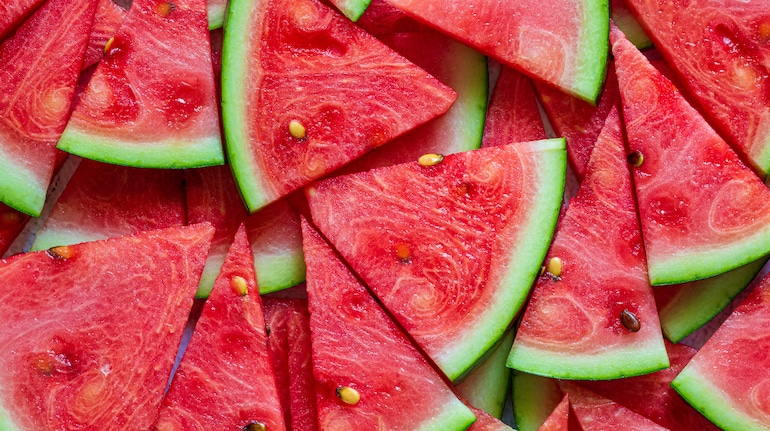
Encourage children to enjoy a variety of fresh fruits and vegetables, such as watermelon, berries, cucumbers, and bell peppers. These foods are hydrating, rich in vitamins, minerals, and antioxidants, and help replenish electrolytes lost through sweat (Image: Canva)
During summer vacations, children are often more active, engaging in outdoor activities and sports. Proper nutrition plays a vital role in supporting their energy levels, immune function, and their health. By making nutritious food choices, parents can help their children thrive during the summer months.
Here is what children should eat:
Variety of fruits and vegetables: Encourage children to enjoy a variety of fresh fruits and vegetables, such as watermelon, berries, cucumbers, and bell peppers. These foods are hydrating, rich in vitamins, minerals, and antioxidants, and help replenish electrolytes lost through sweat.
Light and small meals: Opt for light and refreshing meals that are easy to digest, such as salads, sandwiches with whole-grain bread, and wraps filled with lean proteins and veggies. These meals provide essential nutrients without weighing children down in the summer heat.
Hydrating beverages: Keep children hydrated by offering plenty of water throughout the day, especially during outdoor activities. Coconut water, homemade fruit smoothies, and herbal teas are also excellent hydrating options.
Dairy products: Include dairy products like yogurt, cheese, and milk into children’s diets to ensure they receive adequate calcium and vitamin D for bone health. Opt for low-fat or non-fat varieties to reduce saturated fat intake.
Remember to avoid these foods:
Sugary and processed snacks: Limit consumption of sugary snacks, candies, and processed foods, as they provide empty calories and can contribute to weight gain and dental cavities. Instead, offer healthier alternatives like fresh fruit, nuts, or homemade trail mix.
Story continues below Advertisement
Fried and greasy foods: Avoid fried and greasy foods, such as French fries, potato chips, and fried chicken, which are high in unhealthy fats and can lead to digestive discomfort. Opt for baked or grilled alternatives for a healthier option.
Excessive sugary beverages: Reduce intake of sugary beverages like soda, fruit juices, and sports drinks, as they can contribute to weight gain and tooth decay. Encourage children to choose water or unsweetened beverages instead.
Overly spicy or heavy meals: Steer clear of overly spicy or heavy meals, as they can cause digestive issues and discomfort, especially in hot weather. Instead, prefer lighter, well-balanced meals that provide sustained energy without causing digestive distress.
Parents should be mindful of any food allergies or dietary restrictions their children may have and take appropriate precautions. Additionally, encourage children to practice good hygiene, such as washing hands before meals and handling food safely, to prevent foodborne illnesses.
